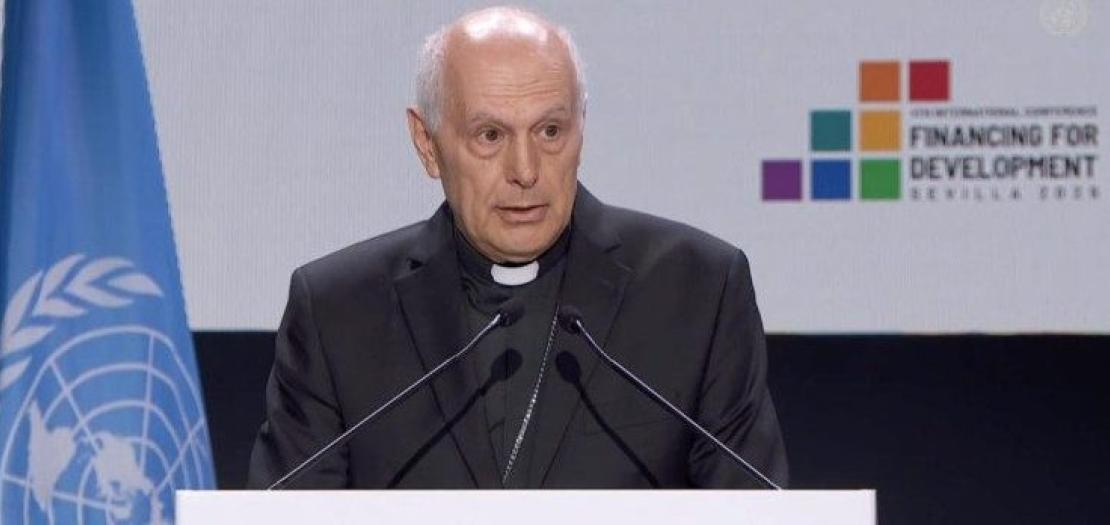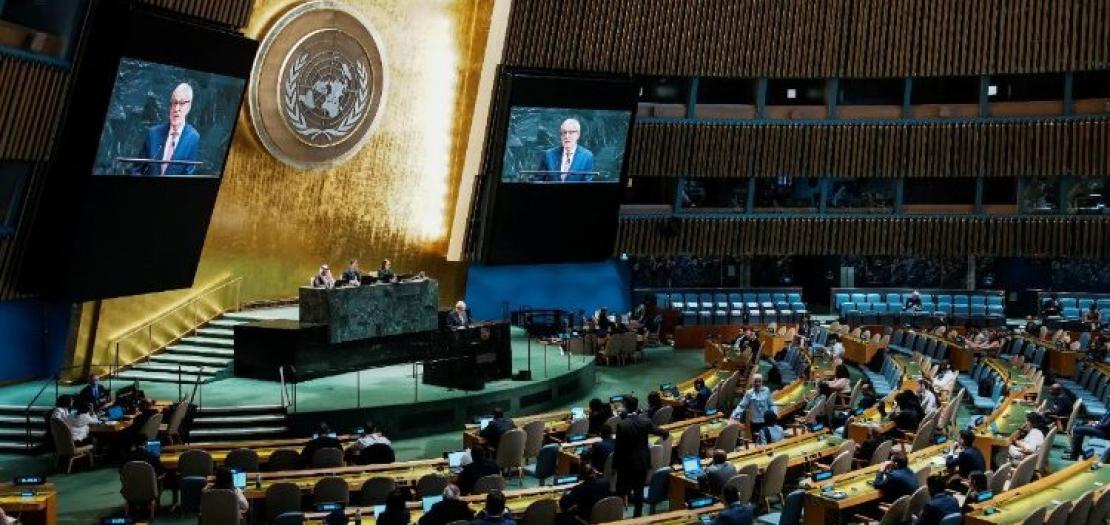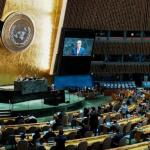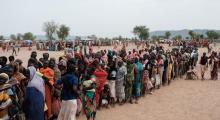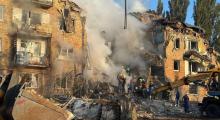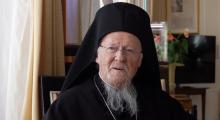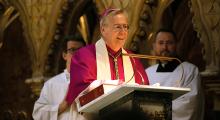Issued by the Catholic Center for Studies and Media - Jordan. Editor-in-chief Fr. Rif'at Bader - موقع أبونا abouna.org
For three days—28-30 July—United Nations member states joined the High-level International Conference at the UN headquarters in New York. The issue on the table: the Peaceful Settlement of the Question of Palestine and the Implementation of the Two-State Solution.
Terrorism is always a “no”
As the Apostolic Nuncio and Permanent Observer of the Holy See to the United Nations, Archbishop Gabriele Caccia, explained that “in the light of the profound anguish and terrible human suffering that has befallen the region,” the Holy See “unequivocally” condemns the terrorist attack of 7 October 2023 by Hamas.
“Terrorism can never be justified”, the Permanent Observer argued. But he also emphasized that self defense must be contained within the “traditional limits of necessity and proportionality.”
Moreover, Archbishop Caccia stressed, the Holy See is very concerned about the deteriorating humanitarian crisis taking place in the Gaza Strip. He highlighted the atrocities that continue to “wound an already distressed community”—scores of children killed and homes, hospitals, places of worship destroyed.
This situation is “deeply concerning given that Christians in the region have long played a vital role as a moderating and stabilizing presence, promoting dialogue and peace”, the Holy See Permanent Observer highlighted.
Only way to lasting peace
In light of the widespread displacement of families, collapse of critical services, increasing hunger and hardship, the Holy calls urgently for “an immediate ceasefire, the release of all Israeli hostages, the restitution of the bodies of the deceased, the protection of all Palestinian civilians in accordance with international humanitarian law, and unhindered access to humanitarian assistance.”
Archbishop Caccia expressed the Holy See’s firm belief that the Two-State Solution, “based on secure and internationally recognized borders, is the only viable and equitable path toward a just and lasting peace.”
And it is more than simple words for the Holy See. It has taken concrete steps towards realizing this vision. It recognized the State of Israel with the 1993 Fundamental Agreement and the State of Palestine through the 2015 Comprehensive Agreement. The Holy See remains committed to the inalienable rights of the Palestinian people and it continues to back their “legitimate aspirations to live in freedom, security, and dignity within an independent and sovereign State.”
A special status for special city
As Jerusalem is a city sacred to Christianity, Islam, and Judaism, Archbishop Caccia stressed it needs a status that rises above political divisions and preserves this unique identity.
To achieve this, the Holy See reaffirmed its longstanding call for a special status recognized internationally, which protects the rights and dignity of all residents and believers of the three religions, “the equality before the law of their institutions and communities, safeguarding the City’s sacred character and exceptional religious and cultural heritage.”
Moreover, this status must offer protection for the Holy Places, allow unrestricted access to them, and offer the ability to worship there. The Archbishop continued by reiterating the need for the “Status Quo” to be preserved, when applicable, and that no one should be harassed in the city.
Ending his message, the Permanent Observer recalled the words of Pope Leo calling for peace and the preservation of human dignity during his Angelus on 20 July: "I once again call for an immediate end to the barbarity of war and for a peaceful resolution to the conflict. I renew my appeal to the international community to uphold humanitarian law, to ensure the protection of civilians, and to respect the prohibitions against collective punishment, the indiscriminate use of force, and the forced displacement of populations."
“I once again call for an immediate end to the barbarity of war and for a peaceful resolution to the conflict. I renew my appeal to the international community to uphold humanitarian law, to ensure the protection of civilians, and to respect the prohibitions against collective punishment, the indiscriminate use of force, and the forced displacement of populations.”


